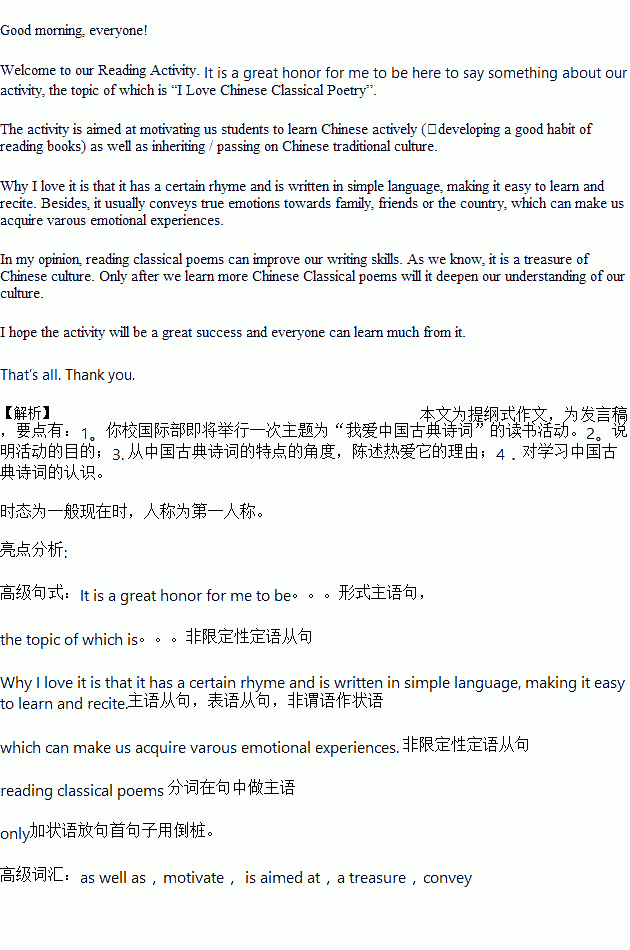��Ŀ����
�������������У���ʲ���������һ������Ϊ���Ұ��й��ŵ�ʫ�ʡ��Ķ������㽫����ȫ��ѧ������������ʽ�Ϸ��ԡ��������������ʾ����Ӣ��дһƪ���Ը塣���ݰ�����
1. ˵�����Ŀ�ģ�
2. ���й��ŵ�ʫ�ʵ��ص�ĽǶȣ������Ȱ��������ɣ�
3. ��ѧϰ�й��ŵ�ʫ�ʵ���ʶ��
ע�⣺
1. ����100�����ң�
2. ��ͷ��д�ã��������ܴ�����
3. ���ʵ�����ϸ�ڣ���ʹ�������ᡣ
�ο��ʻ㣺�ŵ�ʫ�� classical poetry; Ѻ�� rhyme
Good morning, everyone!
Welcome to our Reading Activity._________________________________________________________
_____________________________________________________________________________________
_____________________________________________________________________________________
_____________________________________________________________________________________
_____________________________________________________________________________________
_____________________________________________________________________________________
________________________________________________
 �������ͬ������ϵ�д�
�������ͬ������ϵ�д�

 of hours passed.____________, the headlights from another car could be seen in the____________. An unfamiliar man got out of the car. He looked ______________at first until his mouth opened with a big friendly smile. He asked us to get into the ____________with him. He had such a kind face, so we knew we could ______________him. We climbed into the car.
of hours passed.____________, the headlights from another car could be seen in the____________. An unfamiliar man got out of the car. He looked ______________at first until his mouth opened with a big friendly smile. He asked us to get into the ____________with him. He had such a kind face, so we knew we could ______________him. We climbed into the car. C. special D. faraway
C. special D. faraway